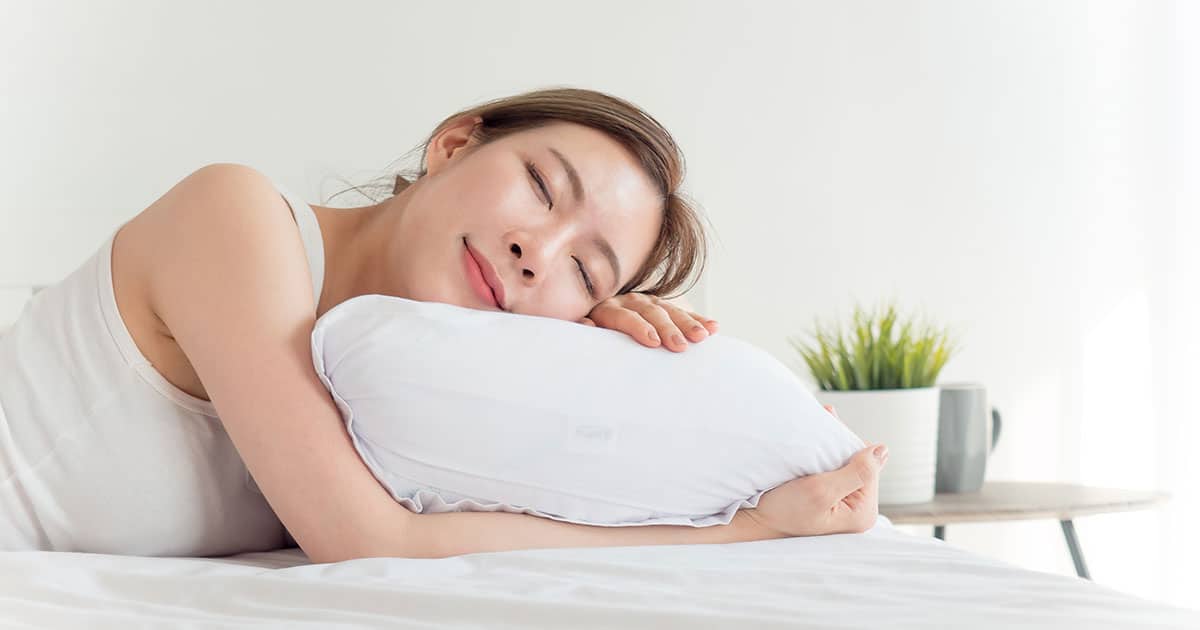While there is no debating the “calories in versus calories out” equation we hear so often when trying to lose weight, there’s actually a whole lot more to the picture.
The ability to feel hungry, full, or motivated (to work out) can all be strongly influenced by non-diet-related factors involving hormonal and/or neurological shifts.
This is why sleep is important to weight loss, as the quality, quantity, and consistency of sleep can promote these shifts in either a positive or negative direction when it comes to weight loss, and in more ways than one.
Sleep Affects Appetite
Your stomach doesn’t have a brain—when it’s hungry, it has to relay this information to the brain by releasing a hormone called ghrelin.
Only after the brain receives this encoded message will you actually experience the sensation of hunger.
In a perfect world, this two-way communication channel between brain and stomach would be securely “encrypted” so that no other factors could artificially induce or inhibit the sensation of hunger, but of course, it’s not a perfect world.
When you don’t get enough (quality) sleep, for example, you are likely to increase the amount of ghrelin in your system, says this study from the Children’s Hospital of Eastern Ontario Research Institute.
The same study found that sleep deprivation also ramps up plasma concentrations of cortisol, a hormone that contributes not only to increased appetite, but crankiness as well.
These observations point to an important theme: when you don’t sleep well, your body enters a stressed out, semi-panicked survival state, which means taking in and conserving as much energy as possible.
Losing Sleep Kickstarts Junk Food Cravings
When sleep deprivation ramps up your appetite, it tends to steer you towards “energy-dense” options, i.e., fatty and unhealthy foods, which is a double whammy that nobody struggling with weight loss needs.
This effect was illuminated very clearly by this study from University of California at Berkeley, in which 23 healthy participants showed a much greater preference for junk food items after a night of total sleep deprivation.
The researchers even used functional MRI scans to show how the “food-choice desire” areas of the brain responded more intensely to being shown images of junk food when the participants were sleep-deprived than when they were rested.
The Sleep-Exercise Spiral
The bidirectional connection between sleep and exercise is still being explored, but at a minimum, the scientific community mostly agrees that each of these factors directly influences the other in a few fundamental ways.
Most importantly, if you exercise regularly and effectively, you may see your sleep quality improve, and with improved sleep quality, you may see your motivation to workout improve.
If you still wanted to monitor more you can keep an eye on your calorie by using a calorie calculator.
This academic article from the University of Pittsburgh’s Department of Psychiatry found that “poor sleep…predicts lower levels of physical activity 2-7 years later,” and that some studies have even shown next-day (adverse) effects on workout motivation after just a single night of poor sleep.
We realize the “workout, move more, just do anything” shtick is not a breathtaking revelation to anyone with ears, but by bringing the importance of sleep to a similar volume level, you can increase your chances of maintaining a more consistent weight loss routine.
Best of all, you don’t have to go this alone—CBD supplements are uniquely suited to balance both sides of this important sleep-exercise equation.
To connect with a high-quality product available in your area, check out the nearest CBD shop to your location.
Quantity Isn’t Everything: Simple Sleep Strategies Explained
Age, genetics, and medical history can affect when the optimal sleep window is, but in general, it’s always advisable to follow the light—well, the natural light, that is.
Too much artificial light, an indulgence almost all of us are guilty of, can trick your natural circadian rhythm and ruin your sleep schedule.
Nobody can reasonably avoid artificial light altogether, but exposing yourself to natural light during the day and keeping the artificial light at a minimum before bedtime can make a huge difference.
Between this simple strategy and a consistent effort in the diet and workout departments, you can ensure sleep is an ally, not an enemy in the battle against weight gain.



